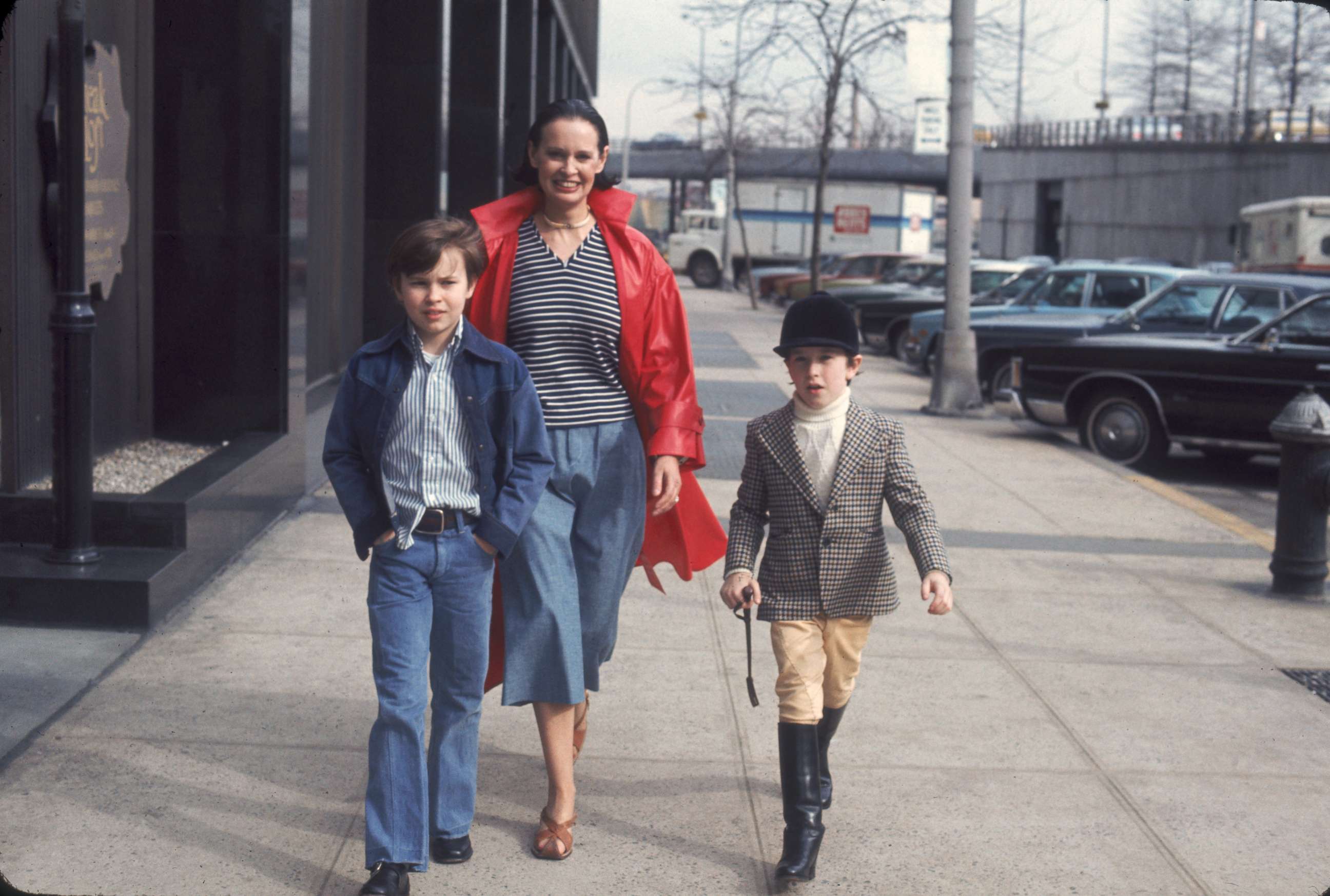Anderson Cooper discusses his brother's suicide, meditation and 'fake news'
Cooper sat down with ABC's Dan Harris for the "10% Happier" podcast.
— -- It’s been nearly 30 years since renowned reporter and CNN anchor Anderson Cooper lost his brother, but he said the shock and pain of his death, after losing his father, has stayed with him.
“It is very close to the surface still,” Cooper told ABC News' Dan Harris during an interview for his "10% Happier" podcast. “It's incredible to me that … I've lived longer without him than I lived with him in my life. It is so bizarre to me -- same thing with my dad.”
Cooper’s father, Wyatt Cooper, was 50 years old when he died in January 1978 while undergoing a heart operation. Cooper was just 10 years old. He said it took years to openly talk about his grief with anyone, and even today, he said he is “incredibly introverted.”
“My dad's death radically changed who I was and became,” Cooper said. “I think the person I was before I was 10 was much more extroverted and outgoing and funny, and was probably kind of a more interesting person than the person after he died. I became much more introverted. I became very concerned about survival.”
His father’s death left a void at home, and Anderson said he became “very concerned” about being there to support his mother -- fashion icon, actress and artist Gloria Vanderbilt -- and his older brother, Carter.

Then, on July 22, 1988, 10 years after losing their father, Carter committed suicide.“I think about my brother, I think about his death every single day,” Cooper said. “To this day [it] is so shocking to me. It's still -- there are days where it’s just like a punch in the gut.”
To hear the full interview, subscribe and listen to the "10% Happier" podcast on Apple Podcasts, Spotify, Google Play Music, Stitcher, TuneIn, ABC Radio podcasts and under the "Listen" tab on the ABC News app.
Cooper wrote about losing his father and brother in his 2006 book, “Dispatches from the Edge: A Memoir of War, Disasters and Survival.” Their deaths were also part of a 2016 book he wrote with his mother called, “The Rainbow Comes and Goes: A Mother and Son Talk About Life, Love, and Loss,” and a topic in an HBO documentary about Vanderbilt called, “Nothing Left Unsaid” that same year.
“All that stuff, it never leaves you,” Cooper said. “People in TV use that horrible word ‘closure,’ which…I think should just be banned, that word, for anyone who has experienced loss, particularly early loss, there’s no such thing as closure. I mean, wounds heal, but scars remain, whether or not people can see them.”
After college, Cooper wanted to find a job in journalism, and said he initially tried to get entry-level work at two different networks, but was unsuccessful. Eventually he made his way to Channel One, a small news agency that broadcasts to high schools across the country. But Cooper wanted to go into combat zones rather than sit at a desk, so he said he took a camera and “snuck into” Burma -- now Myanmar -- to chase stories in the Southeast Asian nation, and then in Somalia in 1992 during the early days of the country's famine.
All the while, his brother’s death stayed with him.
“I realize a lot of that [early foreign reporting] was about not being sure I could survive, and wanting to be around other people where life and death was very much an issue, where people weren’t just having happy talk at a dinner party about facial moisturizers,” Cooper said. “I wanted to go to someplace obscure, where people's voices weren't being heard. … [where] everything is gutted, it's raw, it's real, and I needed that. I wanted that.”
Cooper is now a 23-year news veteran who hosts his own two-hour show on CNN, “Anderson Cooper 360”, and is a contributor for CBS News’ “60 Minutes.” It was a 2014 report he did on mindfulness for “60 Minutes” that led him to start a regular meditation practice of his own.
“The most I get out of it [meditation] is the change it has made in my day-to-day life, in my hour-to-hour life,” he said. “I’ve had incredible experiences, but I often am not appreciating them.”
He said his meditation practice has helped him feel like he’s living his life more fully as opposed to being on autopilot, but so far, it hasn’t had much bearing on handling the grief he still grapples with every day.
“You know when you're driving in a car … and you get to the place and you have no memory of how you actually got there?” he continued. “I just feel like that's how I’ve spent -- I’ve done [that] a lot in the last 20 years.”
Cooper said he mostly avoids social media -- though he did set up an Instagram account for his now 93-year-old mother, @GloriaVanderbilt. Now, reporting at a time when President Trump routinely turns to Twitter to accuse various news organizations, including CNN, of spreading “fake news,” is part of Cooper's gig. But Cooper said he doesn’t worry about that too much.
“To me, the answer to that is journalism,” he said. “And then there's more criticism, and the answer to that is just more journalism, and just doing the best you can, being as honest and as fair as possible and moving forward and just keep at it.”



